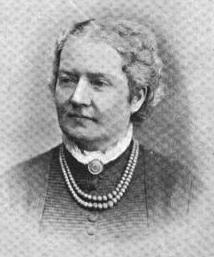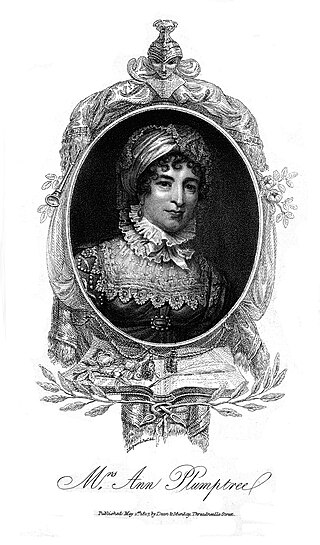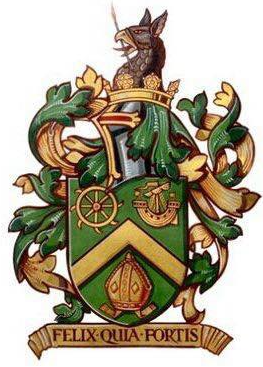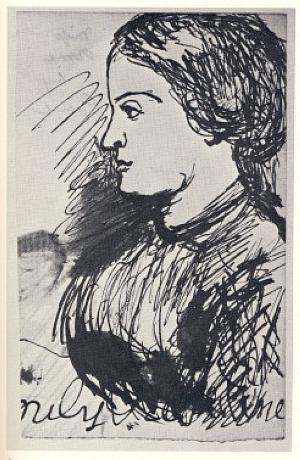Margaret Croker | |
|---|---|
 her 1818 three volume novel | |
| Born | Margaret Sarah Croker Before 1773, |
| Died | After 1820, |
| Nationality | Great Britain |
Margaret Sarah Croker (before 1773 - after 1820 ) was an English poet and novelist.
Margaret Croker | |
|---|---|
 her 1818 three volume novel | |
| Born | Margaret Sarah Croker Before 1773, |
| Died | After 1820, |
| Nationality | Great Britain |
Margaret Sarah Croker (before 1773 - after 1820 ) was an English poet and novelist.
She was baptised on 5 March 1773 in Holbeton in Devon. Her parents were Mary and Captain Richard Croker. [1]
Croker's poems are seen as examples of women speaking out in the hope of getting a woman as a monarch after a disappointing run of male monarchs. Someone who could be "firm" as she says in her 1817 lament A Monody on the Lamented Death of Princess Charlotte Augusta. [2]
Her 1818 three volume novel was titled The Question, who is Anna?. [3] It concerned the life of a woman who was born to unmarried parents. Croker deals with her heroine in a kindly way. [1]

Louisa Stevenson was a Scottish campaigner for women's university education, women's suffrage and effective, well-organised nursing. She was the co-founder of Edinburgh’s Queen Margaret University.

Anne Plumptre was an English writer and translator sometimes collaborating with her sister Annabella Plumptre. She translated several German works into English.
Anna Maria Bennett (Nee Evans was a novelist who wrote in English. Some sources give her name as Agnes Maria Bennett. Her best-known work is the epistolary novel Agnes de-Courci.

The Blue Stockings Society was an informal women's social and educational movement in England in the mid-18th century that emphasised education and mutual cooperation. It was founded in the early 1750s by Elizabeth Montagu, Elizabeth Vesey and others as a literary discussion group, a step away from traditional, non-intellectual women's activities. Both men and women were invited to attend, including the botanist, translator and publisher Benjamin Stillingfleet, who, due to his financial standing, did not dress for the occasion as formally as was customary and deemed "proper", in consequence appearing in everyday blue worsted stockings.

Margaret Bright Lucas was a British temperance activist and suffragist. She served as president of the British Women's Temperance Association (BWTA), the World's Woman's Christian Temperance Union (WCTU), and the Bloomsbury branch of the Women's Liberal Association.

Saint Felix School is a 2–18 mixed, private, day and boarding school in Reydon, Southwold, Suffolk, England. The school was founded in 1897 as a school for girls but is now co-educational.

Ann Catley (1745–1789), also known as Ann Lascelles, was an English singer, actress, and prostitute.

Hilda Diana Oakeley was a British philosopher, educationalist and author.
Marianne Croker (1791–1854) was an English watercolour painter and author of the 19th century.

Matilda Ashurst Biggs was a member of the notable 19th-century British family of reformers, the Ashursts. Their circle of radicals was nicknamed the "Muswell Hill Brigade" after the family homestead. Alongside her family, Matilda Biggs promoted progressive domestic and foreign causes, especially working for women's equality in Britain and Italian unification.
Ursula Mellor Bright or Ursula Mellor was a British activist for married women's property rights.

Anne Chamber was an English noblewoman and poet.

Emily Rosaline Orme (1835–1915) was a leader of the Edinburgh National Society for Women's Suffrage. She was a noted campaigner for women's suffrage in Scotland.
Helen Ekins was a British horticulturist and educational administrator associated with Studley College which trained women in agriculture, in Warwickshire.
Faith Gray born Faith Hopwood was a British diarist, school founder who, with Catharine Cappe, improved education in York for poor girls and at the Grey Coat School.
Edith Mary Marvin, born Edith Mary Deverell was a British inspector of schools.
Mary Speke was an English nonconformist patron and political activist. She lived in Somerset in a non-conformist family. She was credited with changing her husband's political opinions and the Bishop of Bath and Wells reported her to the Secretary of State as "the most dangerous woman in the West".
Hannah Elizabeth Pipe was a British headmistress.
Isabel Cleghorn LLA was a British educationist and suffragist. She was the headteacher at Heeley which is now part of Sheffield and she was the first woman President of the National Union of Teachers in 1911.
Maria, Lady Thynne born Maria Tuchet nicknamed "Mall" was an English gentlewoman whose marriage was against her and her husband's family's wishes and this led to a long legal dispute. It is possible that this story influenced Shakespeare to start to rewrite the Italian story of Romeo and Juliet. Maria and her mother-in-law's correspondence is extant and gives an insight into their disagreement.